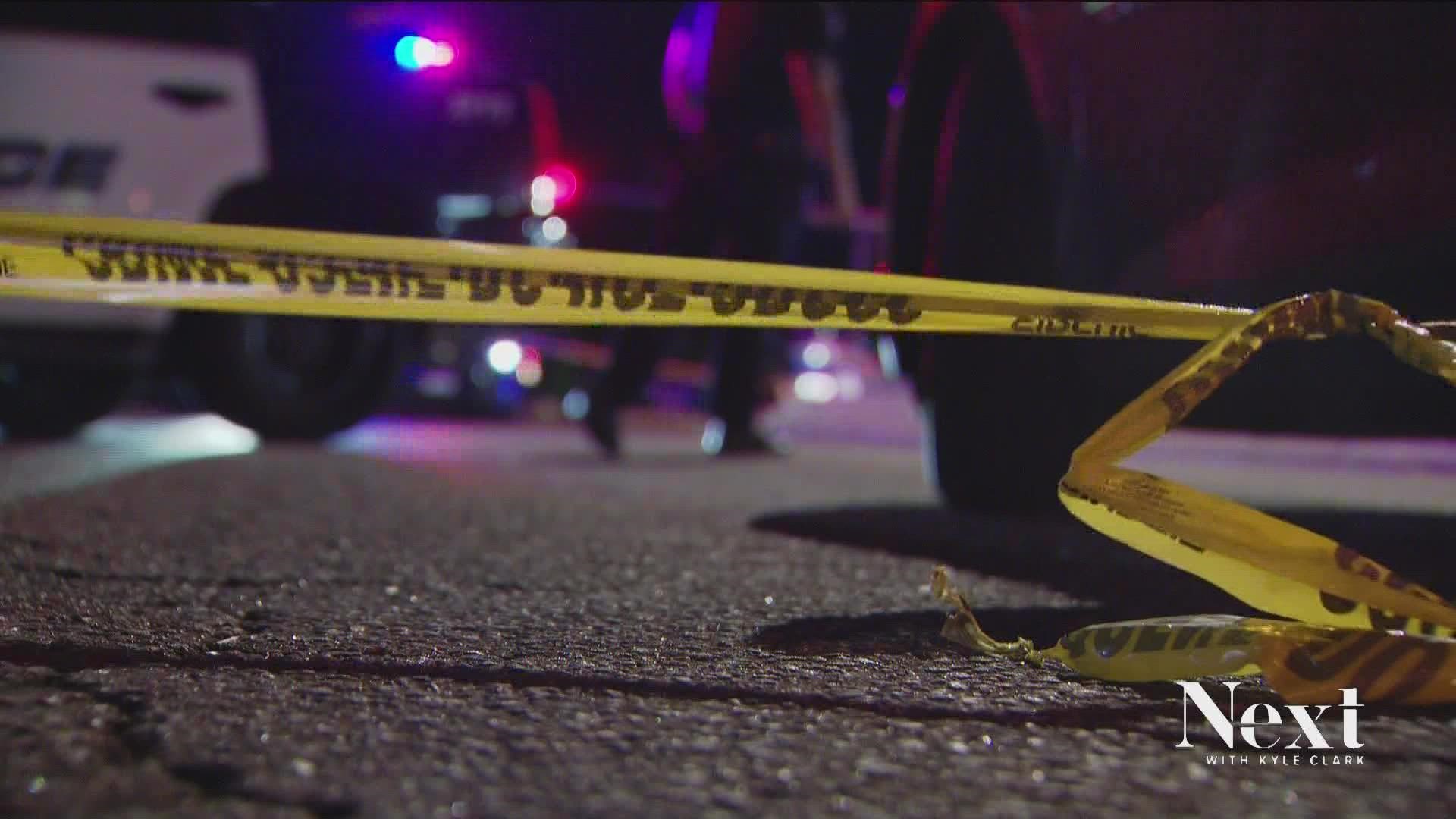AURORA, Colo. — Sunday night on Colfax in Aurora saw lots of flashing lights and evidence markers. Police shot and killed a man on an RTD bus who they say was threatening people with a knife.
Aurora Police Interim Chief Dan Oates said the man left a work release program for inmates with mental health and substance abuse issues. According to Aurora Police, officers found him on the bus after he robbed a store.
9News asked the chief late Sunday night if a clinician with the co-responder program was dispatched to the scene since the man was coming from a facility dealing with mental health issues.
"My understanding is that there was no one with those skills working at the time of the event," Oates answered.
We now know why there was no one working.
Aurora Police currently doesn’t have a single clinician working in the co-responder program that sends an officer and a mental health professional to crime scenes together.
"At this exact moment, we have zero actual co-responding clinicians at the moment," Courtney Tassin, Crisis Intervention Programs Manager for the City of Aurora, said.
Fully staffed, the co-responder program would have five clinicians working in teams with specially trained police officers. Last year they responded to more than 1,000 calls.
The team hasn’t been fully staffed since 2017 and hasn’t had a single clinician for a month now.
The City of Aurora pointed out that Tassin, who holds a managerial role as the program manager, is a trained clinician and can respond to calls with officers when available as part of the Crisis Response Team (CRT) co-responder program.
The city told 9News in a statement, "In the time CRT has been without a staffed clinician, she sets one full day each week to ride with CRT officers. The number of emergency calls during those days varies, but was a recently as high as seven calls in a single day."
Clinicians in the co-responder program usually go to calls of all types dealing with mental health issues, anything from active shooters to trespassing. They often wait in the car before coming out when it’s safe.
It’s important to note we don’t know if a clinician would have responded to this scene last night, even if there was anyone working in the program.
Tassin said pay has been a hurdle in convincing people to work.
"There are people who are very interested, but you have to be willing to adequately pay those people and give them benefits that makes this worth it," She said. "When you go to grad school to be a therapist, you’re not exactly expecting to put a bullet proof vest on every day."
Aurora said it's in the middle of finalizing a new contract to hopefully raise pay and benefits for clinicians. There's no timeline, though, for when new employees will be out on the streets and trained.
The department does have officers that are trained in crisis intervention currently on the streets, but no clinicians responding to calls with them.
Instead, Aurora’s Mobile Response Team, which pairs a mental health clinician and a paramedic to respond to non-violent calls, is picking up some of the calls.
"That mobile response team is helping and serving as a co-responder team of sorts, where officers are requesting that team to come out and serve more in the co-responder role when they’re available and able to," Tassin said.
SUGGESTED VIDEOS:

